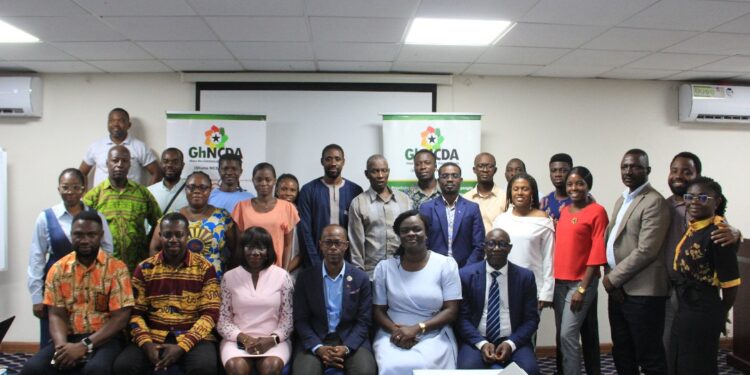New GhNCDA Report Highlights Increasing Financial Burden of Non-Communicable Diseases in Ghana
In an effort to promote public health and tackle the rising burden of Non-Communicable Diseases (NCDs) in Ghana, the Ghana Non-Communicable Disease Alliance (GhNCDA) in collaboration with its partners has launched a comprehensive report on the financial burden of care for people living with non-communicable diseases across the country.
Non-Communicable Diseases (NCDs) pose a significant health challenge in Ghana, leading to high rates of mortality and morbidity. This study focuses on assessing the economic burden faced by individuals living with NCDs in Ghana, particularly concerning health financing through the National Health Insurance Scheme (NHIS) and out-of-pocket expenses incurred by patients and their families.
Globally, NCDs are a leading cause of death, with a particularly heavy burden in low-and middle-income countries (LMICs). In Ghana, NCDs accounted for about 43% of deaths, highlighting the pressing need to delve into the financial implications despite the presence of the NHIS.
Ghana’s national health insurance policy, in place since 2003, falls short of covering essential NCD services, resulting in significant out-of-pocket healthcare expenses, notably for NCD treatments, care, and support. The limited NHIS benefit package places a considerable financial strain on patients seeking care, with out-of-pocket costs reaching up to 38% in 2021. Despite the pressing need for action, the global health community’s response to the escalating burden of NCDs has been slow, marked by insufficient political commitment and resource allocation.
Addressing various stakeholders at the engagement, the National Coordinator of the GhNCDA, Labram Musah stressed the significant financial burden that people living with NCDs endure in a bid to get quality healthcare across the country.
“The direct and indirect costs borne by those living with NCDs, particularly out-of-pocket expenses, exacerbate the financial vulnerability of every household particularly those in rural and remote communities, despite the existence of the National Health Insurance Scheme (NHIS).”
The GhNCD Alliance in solidarity with other CSOs continues to reflect their unwavering commitment to promoting health and wellbeing, improving the lives of Ghanaians living with NCDs supporting government efforts towards achieving Universal Health Coverage for everyone, and driving meaningful change in our healthcare infrastructure.
He also noted that It is a collective responsibility to ensure that the progress in NCD treatment care and support is sustained and that the gaps identified in the study are addressed with urgency and determination.
“The findings of this report provide invaluable insights into the financial toll that NCDs have on individuals and families in Ghana. It highlights the gaps in our current health financing mechanisms, particularly the limitations of the NHIS in covering essential NCD services. These findings are not just numbers; they are the lived realities of countless Ghanaians who struggle to access and afford the care they need.”
The meeting brought together key stakeholders from the Ministry of Health, National Health Insurance Authority, Ghana Revenue Authority, health professionals, researchers, civil society organizations, people living with NCDs, media, and international partners.








